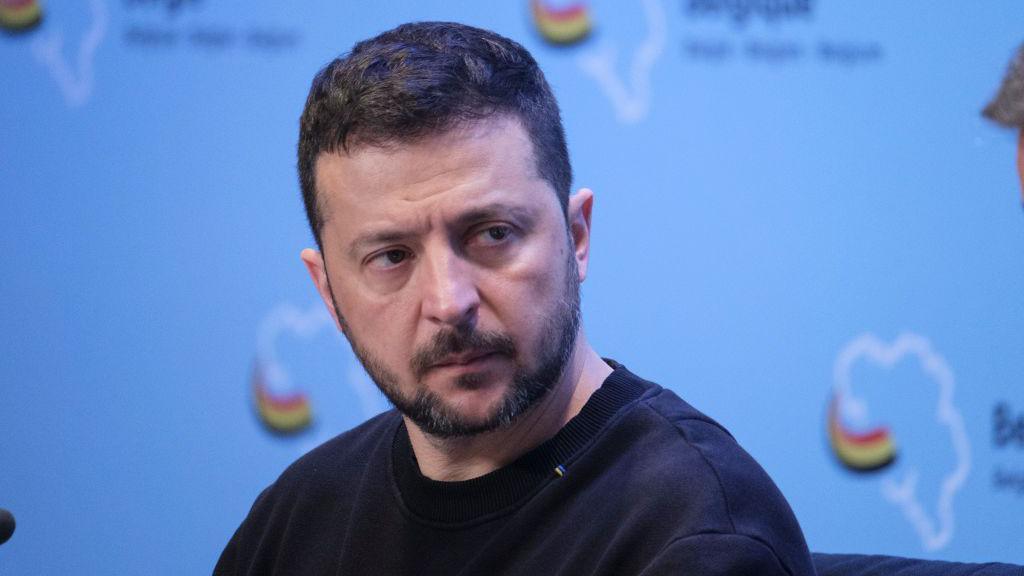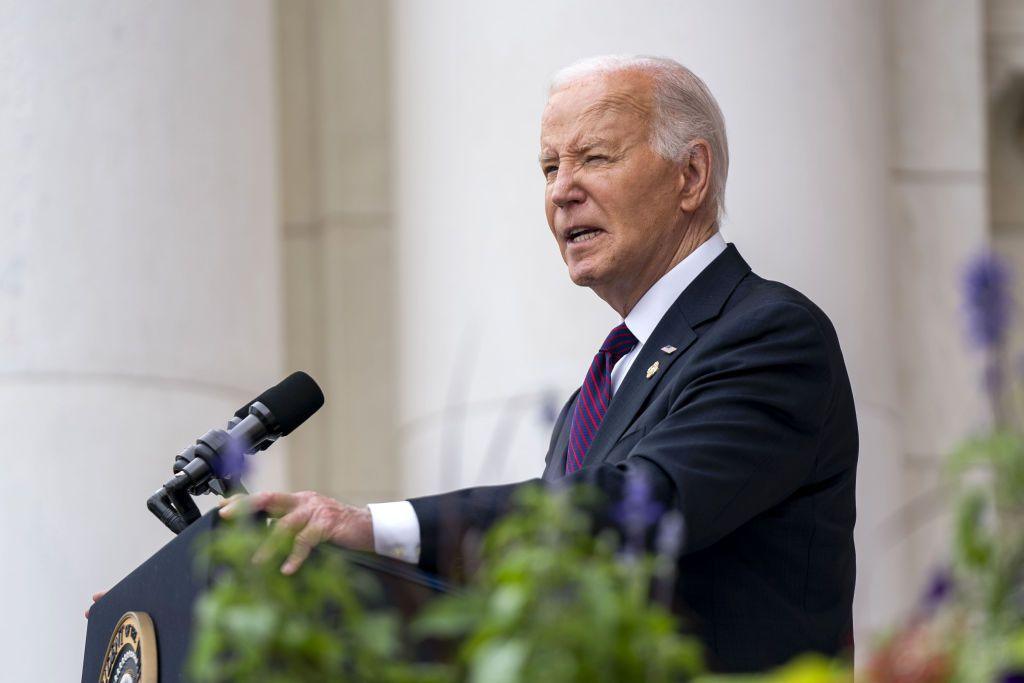Zelensky urges Biden to attend Ukraine peace summit

- Published
Ukraine’s President Volodymyr Zelensky has urged US President Joe Biden to attend a peace summit due to be held in Switzerland in mid June.
Mr Zelensky said his key ally’s possible absence "would only be applauded by [Russian President Vladimir] Putin, personally applauded by Putin, and it would be a standing ovation".
Reports suggest Mr Biden and Vice-President Kamala Harris are set to miss the summit. Although some form of US representation is expected, the president’s absence would be a huge blow for Ukraine.
The summit, which has been planned for months, will be held in the luxury five-star Bürgenstock hotel high above beautiful Lake Lucerne. It came about after Mr Zelensky suggested to former Swiss president Alain Berset that neutral Switzerland should host such an event.
The doubt over the United States’ attendance, and specifically the presence of President Biden, is a huge blow for Ukraine. With Russian troops making advances in recent weeks, President Zelensky desperately needs a big, set piece event – like a summit in Switzerland – to show that the world is still on Ukraine’s side. Washington says it supports the meeting, but has not committed, yet, to sending a high level delegation.
The Swiss government has invited more than 160 countries, and says the summit’s goal is "to provide a forum where world leaders discuss paths towards a just and lasting peace in Ukraine, based on international law and the UN Charter".
But there are glaring obstacles in the way of the summit’s success, chief among them the fact that the country that started the war, Russia, won’t be there. Switzerland says Moscow was not invited, while the Kremlin says it would not attend anyway.
Russia is furious with Switzerland for imposing sanctions - the Swiss have frozen an estimated $14 billion (£11bn) in Russian assets. Direct flights to Russia were also suspended; gone are the days when a daily Aeroflot flight from Moscow would land in Geneva, containing Russian diplomats who were then limousined off to their lakeside five-star hotels.
Late last year, these steps prompted Gennady Gatilov, Russia’s ambassador to the United Nations, to distribute an opinion piece to Geneva journalists arguing that Switzerland had abandoned its neutrality, and was therefore no longer a suitable venue for peace talks.

US President Joe Biden is expected to miss the summit, according to reports in US media
China, whose leader does have the ear of Vladimir Putin, is also not expected to send anyone senior, and Brazil and India, who Switzerland was very keen to include in the negotiations, are rumoured to be sending only junior officials.
The Swiss government says around 70 countries have so far agreed to take part, but President Zelensky, who has been on a whistle stop tour of Europe to drum up support, says the figure is now closer to 90.
They include a number of European leaders, including President Emmanuel Macron of France, and Germany’s Chancellor Olaf Scholz, as well as African and Middle Eastern states.
So what is the likely outcome? In a possible attempt to downplay expectations, the Swiss President Viola Amherd has said there is no guarantee the summit will be a success, and that it will not immediately result in a peace deal.
The complete agenda has not yet been published, but President Zelensky has said the exchange of political prisoners, the safety of nuclear plants, and the return of abducted children should be discussed. It’s not clear if the complete withdrawal of Russian troops from Ukrainian territory, Kyiv’s key demand for any peace deal, will be addressed.
Officially, the Swiss government says this summit is just the start of the process, and a second conference, possibly including Russia, is also under consideration.
Unofficially, cynics in the Swiss media have suggested the most likely outcome of the summit, where world leaders can enjoy Switzerland’s most stunning scenery in an exclusive hotel complete with spa, tennis courts, and even an alpine golf course, is a boost for tourism.
But, Ms Amherd counters: "The alternative would be to do nothing, and that would be irresponsible for the stability of Europe and also for Switzerland."
Jeremy Bowen: Ukraine faces its worst crisis since the war began
- Published28 May 2024
Force Russia to make peace, Zelensky urges West
- Published27 May 2024
Russian strike on Kharkiv supermarket kills 12
- Published26 May 2024